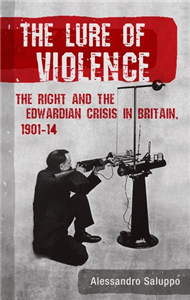Description
More Information
Rights Information
Albania, Algeria, Angola, Argentina, Armenia, Australia, Austria, Bahrain, Belgium, Belize, Benin, Bolivia, Bosnia and Herzegovina, Botswana, Brazil, Bulgaria, Burkina Faso, Burundi, Cameroon, Canada, Cape Verde, Central African Republic, Chad, Chile, China, Colombia, Comoros, Congo [DRC], Congo, Republic of the, Costa Rica, Ivory Coast, Croatia, Czech Republic, Denmark, Djibouti, Ecuador, Egypt, El Salvador, Equatorial Guinea, Eritrea, Estonia, Ethiopia, Faroe Islands, Finland, France, French Guiana, Gabon, Gambia, Georgia, Germany, Ghana, Greece, Guatemala, Guinea, Guinea-Bissau, Guyana, Honduras, Hongkong, Hungary, Iceland, India, Indonesia, Iran, Iraq, Ireland, Israel, Italy, Japan, Jordan, Kazakhstan, Kenya, Kuwait, Latvia, Lebanon, Lesotho, Liberia, Libya, Lithuania, Luxembourg, Macau, China, Macedonia [FYROM], Madagascar, Malawi, Malaysia, Mali, Malta, Mauritania, Mauritius, Mayotte, Mexico, Mongolia, Montenegro, Morocco, Mozambique, Namibia, Netherlands, New Zealand, Nicaragua, Niger, Nigeria, Norway, Oman, Pakistan, Panama, Paraguay, Peru, Philippines, Poland, Portugal, Puerto Rico, Qatar, Reunion, Romania, Russia, Rwanda, Saint Helena, Sao Tome and Principe, Saudi Arabia, Senegal, Serbia, Seychelles, Sierra Leone, Singapore, Slovakia, Slovenia, Somalia, South Africa, South Korea, Spain, Sri Lanka, Sudan, Suriname, Swaziland, Sweden, Switzerland, Syria, Taiwan, Tanzania, Thailand, Timor-Leste, Togo, Tokelau, Tunisia, Turkey, Uganda, Ukraine, United Arab Emirates, United Kingdom, United States, Uruguay, Venezuela, Vietnam, Western Sahara, Yemen, Zambia, Zimbabwe, South Sudan, Cyprus, Palestine, Bangladesh, Cambodia, Liechtenstein, Azerbaijan, Jamaica, Kyrgyzstan, Dominican Republic, Myanmar, Monaco
Reviews
The book examines how the British Right responded to the challenges of democratisation and, more generally, to the national crisis of confidence that permeated the Edwardian years (1901-1914). It explores the mobilization of a variety of different nationalist organisations, citizenpolicing groups, private military associations, and paramilitary formations, which conferred on themselves the right to protect Britain from its internal and external enemies. Academic historians have examined this surge of right-wing extremism within and outside the Tory Party in the prewar years. However, they often overlooked how this 'rebellion on the right' produced a culture of violence in the most reactionary and intransigent sectors of British conservatism. Drawing on a vast array of documentary sources, the book explores the distinctive kind of belief system and the practices of those right-wing actors, which variously pursued the goals of military preparedness, 'racial regeneration' and imperial unity. While differing in their primary aims, they were all guided by the principle that all citizens owed a duty of service to the country and had the right to endorse any movement believed to be beneficial to the nation and its interests. The book reveals their proclivity for violent means to suppress any type of political, social, or cultural deviance that might imperil the organic nature and vigour of the national community. The book is of special interest to historians and other scholarly researchers in that it brings back into focus a largely forgotten network of organisations bound together by deep fears of national decadence and social disintegration. At the same time, it helps shed light on those powerful tensions and authoritarian reflexes which traversed conservative imaginaries in the volatile Edwardian days.
Author Biography
Alessandro Saluppo is an Adjunct Professor of History at Fordham University, New York.
Manchester University Press
Manchester University Press is a leading UK publisher known for excellent research in the humanities and social sciences.
View all titlesBibliographic Information
- Publisher Manchester University Press
- Publication Date November 2025
- Orginal LanguageEnglish
- ISBN/Identifier 9781526164872 / 1526164876
- Publication Country or regionUnited Kingdom
- FormatPrint PDF
- Pages336
- ReadershipGeneral/trade; College/higher education; Professional and scholarly
- Publish StatusPublished
- Dimensions234 X 156 mm
- Biblio NotesDerived from Proprietary 5630
- Reference Code14772





